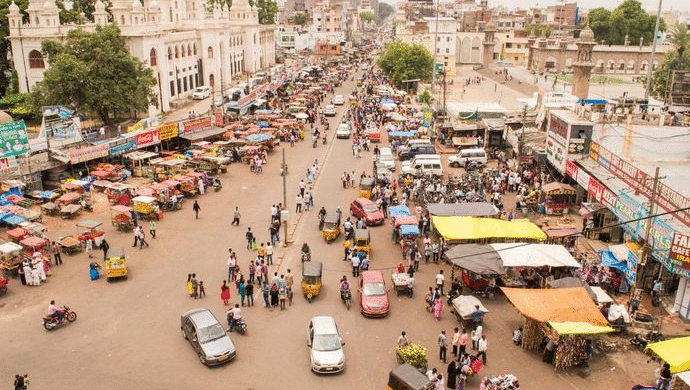The Government’s effort in digitization is working

At seven-plus per cent, India has one of the fastest and steadiest GDP rates.
The government has incentivised growth by offering opportunities through increased public and private participation in the infrastructure sector.
The growth climate along with the entrepreneurial drive has also helped India establish itself as the third largest start-up nation, with so many of our entrepreneurs stepping up to produce local solutions for local problems.
The recent 2019 Union Budget may not have garnered the tax incentives we were looking for but the community did receive some good news via the Government’s focus on sectors like logistics, export-import transactions, AI and digitisation of villages, which confirms the start-up community’s focus also.
There is significant foreign investment interest in the country’s start-up ecosystem as well. Countries like Japan, Korea, China, Russia and the US have evinced interest in investing in our start-ups.
There is a spurt in the number of unicorns in the ecosystem, and the average time for a start-up to achieve unicorn status in India has reduced to five years. We believe that India has fostered 20 plus unicorns at this point, and this has opened up a lot of avenues for investments.
Zomato’s and Swiggy’s ascent to unicorn status confirm the deep interest in food delivery space. Talking about food, we should also recognise the unique opportunity and interest in grocery distribution as a sector, especially e-groceries.
Also Read: Zilingo raises US$226M Series D to expand to Philippines, Indonesia, Australia
Pharma distribution is also gaining interest, while e-commerce has managed to sustain its growth. The Flipkart-Walmart deal has definitely proved India as a money spinner for global investors.
We also see opportunities for building vertical e-commerce businesses across sectors such as finance, consumer internet and agriculture.
Speaking of agriculture – as a country, we have one of the largest agri-economies in the world, but the eco-system is so fractured.
In spite of a pro-farmer budget this year, farmers continue to be in distress.
Unfortunately, there is a lot of food wastage in our country, but I do think that our eco-system should sense opportunities here to address these concerns. There are big, distressing gaps in addressing food storage, logistics, and improvising productivity.
On the other hand, the Government’s focus on digitization appears to be paying off – financial technology (fintech) start-ups have been some of the brightest stars in recent years.
Many customers are now able to access digital banking services while retaining the services of their trustworthy banking names.
The 2019 Budget announcement of 100,000 digitized villages in five years is definitely an icing-on-the-cake for an already booming fintech, ed tech, e-commerce, and content delivery sectors.
Additionally, the time has never been more ripe for ensuring last mile services and inclusion are achieved through leveraging technology.
We have more than half a billion internet users in this country (of which is still growing in rural areas) hence, surely we should be able to leverage on this to ensure their inclusion in access to services.
There are many avenues for investment opening up in our eco-system.
Also Read: Myanmar recycling startup gets US$150,000 and entry into Norwegian accelerator
Take LetsVenture for example – they have created an easily accessible web platform where a start-up seeking funding can register and create a profile or register as an investor to find a start-up that suits their investment interests.
This is a revolutionary way for angel investors to participate in the eco-system.
Another good example would be Venture Catalysts who appear to be evangelising angel investments.
With a network of more than 3000 angel investors, using pitch days and serving as an incubator, Venture Catalysts is building high potential ventures into a feasible scale, especially in Tier two and Tier three cities.
Similarly, Angel Investments started with two groups viz; Mumbai Angels and India Angel Network, and now we have local chapters in Nagpur, Kanpur, Surat, Chandigarh and many more.
The Internet of Things (IoT) sector is opening up markets for both domestic as well as global investors.
NASSCOM estimates that by 2020, the IoT sector in India will peak at US$15 billion. This should definitely be possible following the announcement of a Centre for Excellence and National Centre for Artifical Intelligence, and the uptick of interest in blockchain.
Lastly, but most importantly, cybersecurity will have a critical role in the digital economy – the Government and our eco-system should stop using or seeking plain vanilla solutions, and start giving this the priority it deserves.
In conclusion, as we head into the General Elections this year, regardless of the results, we see India offering big promises and opportunities for sustained long term investment.
—
Photo by arihant daga on Unsplash
e27 publishes relevant guest contributions from the community. Share your honest opinions and expert knowledge by submitting your content here.
The post Start-up ecosystem fuels up to drive through India in 2019 appeared first on e27.